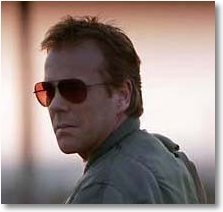The shadow war on terror
SANKABAR, Ethiopia - This is the war on terrorism that most Americans don't know about:
A small U.S. military task force in East Africa is installing water pumps, rebuilding schools and health clinics, making medical house calls, and training national armies - all part of a mission to stabilize a region that is seen as a potential breeding ground for terrorist groups.
"We are coming out of drought because of the pump," Omar Ahmed, a Sankabar elder, said. "So we say thank you, America. And thank you, Mr. Reed. He is the first guy to give us help."
What is happening here provides a glimpse of the Bush administration's global war on terrorism, which is being fought - mostly in the shadows - elsewhere in Africa and across the Middle East, South Asia and Southeast Asia using different combinations of military, covert, economic and diplomatic weapons.
Separated from the Middle East by only a narrow waterway, the Horn of Africa is home to 90 million Muslims, many of whom live in crushing poverty and political isolation. Al-Qaeda has had success in the area, bombing U.S. embassies in Kenya and Tanzania in 1998, attacking the USS Cole off the coast of Yemen in 2000 and nearly shooting down an Israeli charter plane over Kenya in 2002.
The 1,500 troops of the Combined Joint Task Force-Horn of Africa have been stationed since 2002 at Camp Lemonier, a former French base on the Red Sea in the tiny coastal nation of Djibouti. They were sent to hunt down al-Qaeda operatives in East Africa, but there are few known terrorist cells working in the area - two-thirds the size of the United States - and the troops have not made many arrests.
Instead, theirs has become a humanitarian mission, with public relations benefits.
Read it all.



